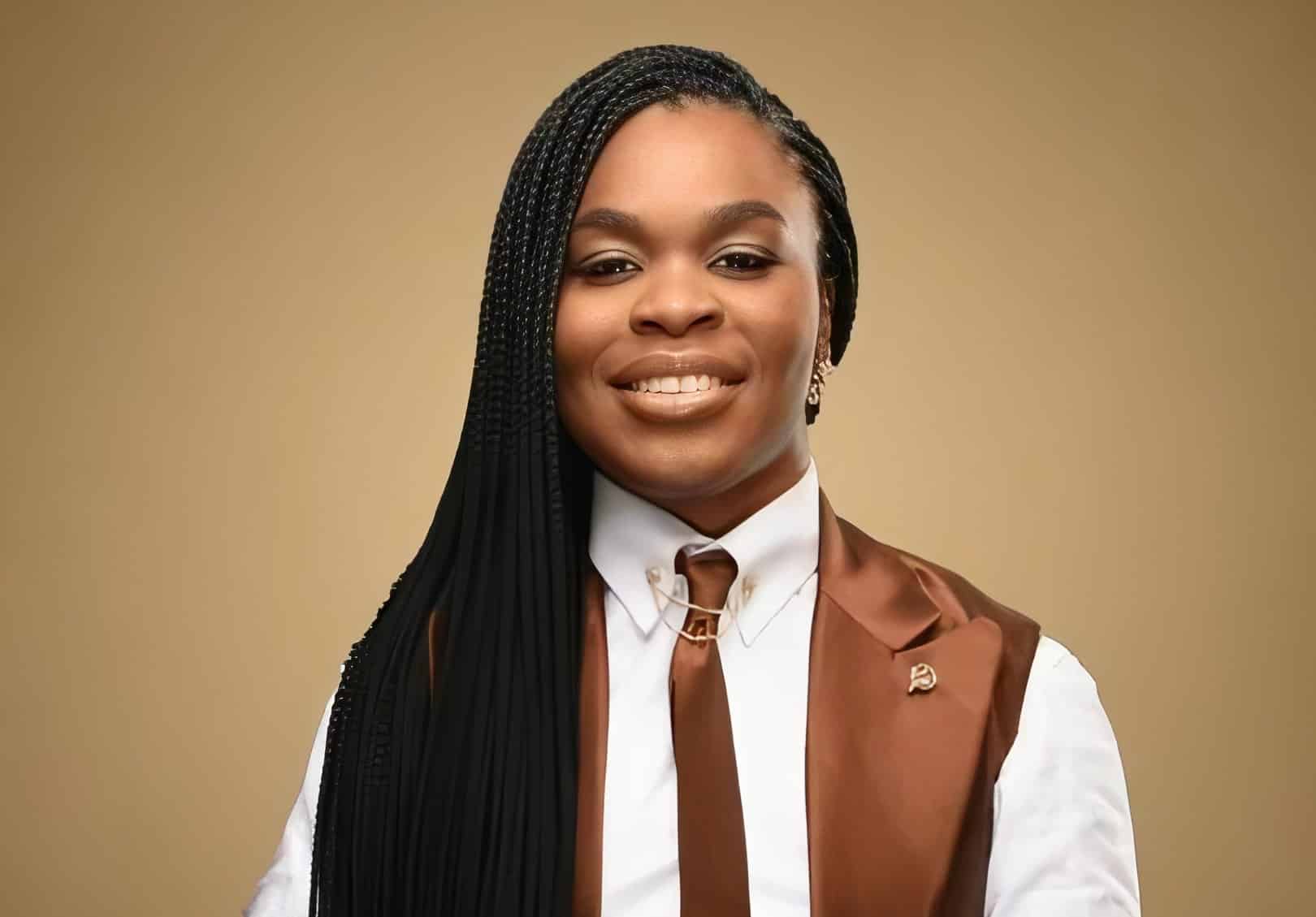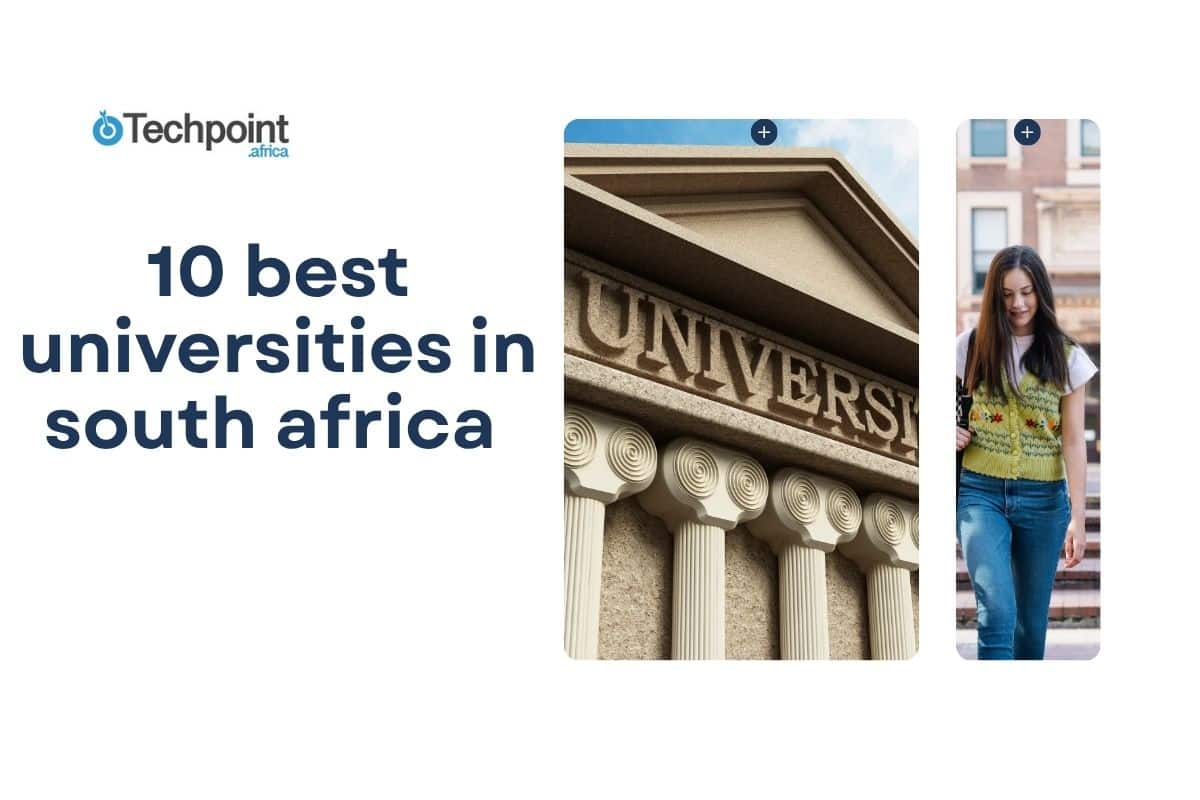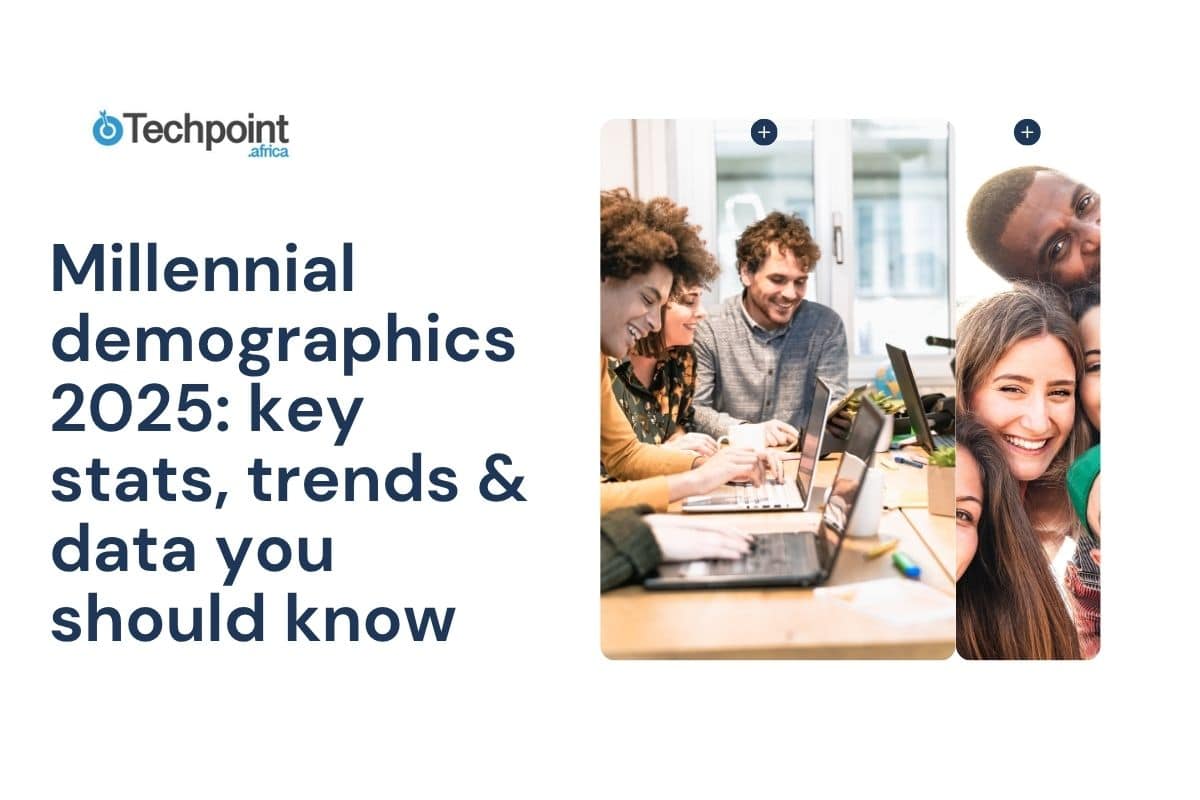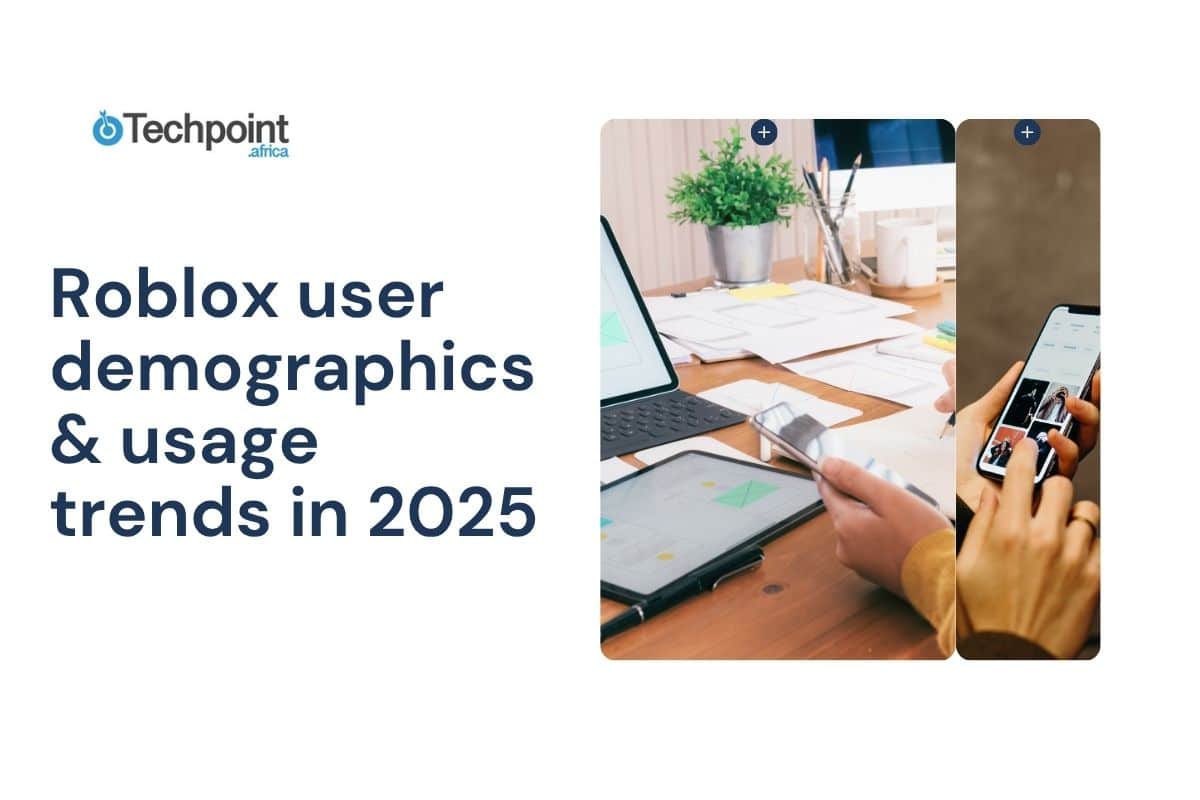The underrepresentation of women in the tech space continues to be a prevalent phenomenon in most parts of the world. A 2020 study by AnitaB.Org shows that of all hires made by tech companies in the US, 29.4% were women, while 69.9% were men.
Closer to home, Techpoint Africa’s West African Startup Decade Report 2020 corroborates the story in the US. It estimates that between 2010 and 2019, only 10% of West African startups with a female co-founder raised over $1 million.
In Africa, the girl child’s access to education is still quite low. According to UNESCO 52 million girls are out of school.
While these might seem like just numbers, it encompasses the story of many women who perceive the tech space as one reserved just for men. In Yanmo Omorogbe’s — Co-Founder, Bamboo — opinion, seeing more women do things in tech might encourage more women to come in.
As male-dominated as the tech space is, however, some women are making their mark, serving as a source of encouragement for more women to dive in.
To celebrate this year’s International Day for the Girl Child, Techpoint Africa spoke to four tech women about their work, life and how they’re navigating a male-dominated ecosystem.
Muthoni Masinde, Founder ITIKI

The idea behind Prof Muthoni Masinde’s startup is rooted in the history of the Kenyan village where she grew up. Masinde transformed ancient knowledge into a technology that has been of immense help to her people.
Her startup, ITIKI, was built from the understanding of nature that her people have gathered through many generations. They could predict, almost accurately, what the weather would be by observing the demeanour of their cattle and the unique croaks of a toad that said the rain was coming.
She combined this indigenous knowledge with tech to birth ITIKI. The startup created a drought prediction solution for small-scale farmers and has moved beyond predicting droughts to locust attacks.
Starting in a Kenyan village

Masinde’s journey from peasant farmer in a remote Kenyan village to globally recognised academic and founder of a transformative agritech startup is an inspiring one.
Although she describes her childhood as normal, she admits that looking back now, it was very hard. “When you go to the city, and you look back, you realise those people are doing really difficult work.”
At that time, education was a luxury for a female child growing up in Masinde’s village. But luckily for her, she had a father that believed strongly in educating every child, regardless of gender.
“He would tell beautiful stories of very tall buildings in Nairobi. Personally, he’ll tell me, ‘my daughter can become a doctor,’” Masinde said with an expression that was perhaps the same one she had while her father told her those stories back then.
She combined having an understanding father with hard work to make a name for herself. While her peers were getting married, Masinde says she doubled down on school, and it paid off.
However, it wasn’t without its challenges.
“There was no electricity, so we never really studied at home. In the village setting, girls get more chores than boys, so we’ll be busy until bedtime. Sweeping, cooking, or depending on the season, you either help with weeding or harvesting. Extremely busy life, but I think we enjoyed it.”
Making it through school
Masinde says she owes some of her academic success to being gifted. With few comprehension problems, she excelled at her favourite subjects like maths, physics, and chemistry.
She recalls a moment that inspired her greatly. “I remember when my mom escorted me to school, carrying those big iron boxes. She told me, ‘my daughter, the best gift you can give to us is working hard.’”
And that stuck with Masinde through high school and university, even to founding her startup.
Building ITIKI
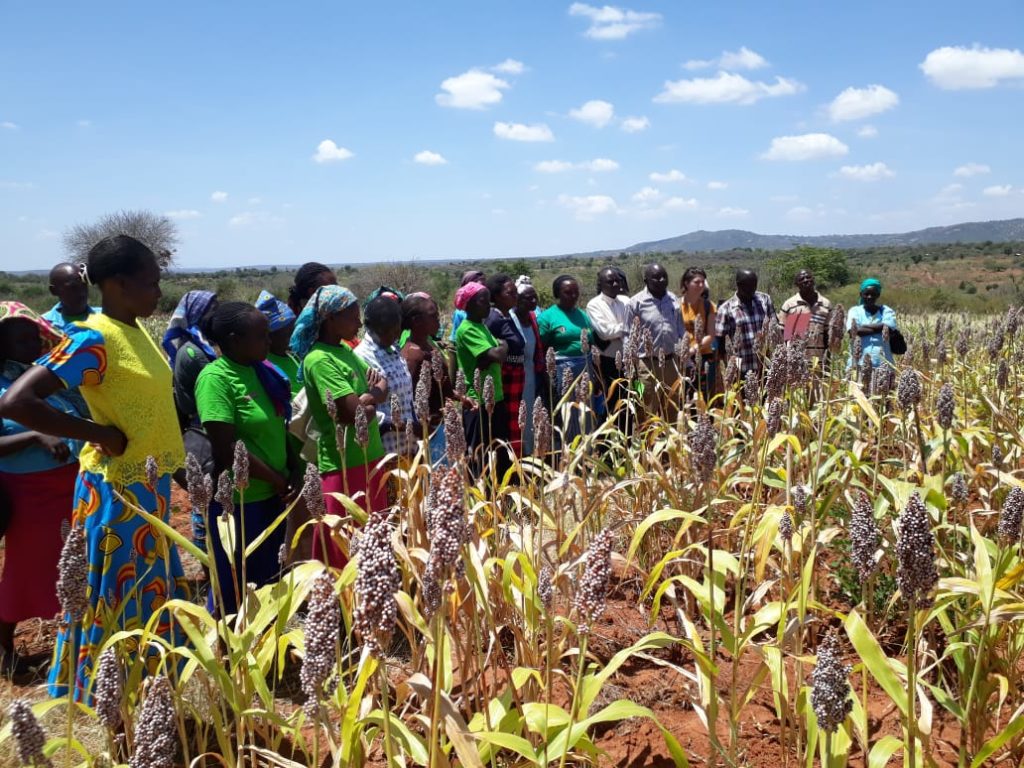
Pursuing a career in tech as a woman can be tricky. While Masinde admits things were easy for her, there were a few times she felt marginalised as a female, especially at the hands of male farmers while trying to explain her technology.
“The more educated people are, the less likely they’re going to look down on people. Every time we went to speak to the farmers, addressing men as old as your dad, they don’t listen because they are not used to women being the ones up there.”
In her opinion, culture plays a role in why tech and other major sectors have fewer women. From a tender age, girls are fed with information that makes them believe some dreams are only meant for a specific gender.
A situation that leaves women at a disadvantage. She says women also need to be given equal chances as men, as most structures that are currently in place only favour men.
To women, Masinde says that for every tech opportunity that comes along, “go for it!”
Yanmo Omorogbe, Co-Founder and COO, Bamboo

Growing up in Ikeja, Lagos, Nigeria, Osayanmo Omorogbe never had the intention of being an entrepreneur, let alone building a startup. And although she describes the journey towards building fintech startup, Bamboo, as a series of lucky stumbles, she was well equipped to make the best of them.
From school days to finding tech
An ardent fan of the American soap opera Days of Our Lives, she always spared time from schooling activities to watch her favourite show.
She was fond of school and is still close to some of her best friends from Grange Schools, Ikeja, Lagos, Nigeria.
Although she runs a fintech firm currently, she never had any interest in tech during her formative years.
“I was a Nigerian child that liked math and chemistry. I wanted to be a chemical engineer and work in Shell or something.”
Her “lucky stumbles” into tech and finance began when she studied Chemical Engineering and discovered she didn’t like it.
This led to an interest in finance and working with a private equity firm in Lagos. She learned more about finance and investing and even became a Chartered Financial Analyst (CFA) holder — a professional designation considered the gold standard for financial analysts.

With her knowledge of finance and investing, she tried to get shares in companies like Apple and Google. But she couldn’t. This difficulty birthed Bamboo; a means for Nigerians to invest in foreign stocks from the comfort of their phones.
Omorogbe grew up knowing she could pursue any career. Having a mother who was a law professor and a grandmother who was one of West Africa’s first female doctors, she needed no further reassurance that she was capable of anything.
“There just wasn’t any room for me to assume that women couldn’t do whatever they wanted. ”
In contrast with this belief, she encountered people who felt some of her aspirations or career choices were reserved for men.
“I remember when I first said I wanted to study engineering, some random person was like, ‘aren’t engineers boys?’ And I remember telling my dad, and it made absolutely no sense to him.”
As the Co-Founder and COO of Bamboo, she faced this once again.
Navigating the tech space
“I was talking to a would-be investor, and he was asking things along the lines of, ‘Am I getting married soon? Am I thinking about having children soon? Because he won’t invest in any business with a newlywed lady.
“I’ve told someone I’m running a fintech, and they were shocked that I’m not into fashion.”
But she’s surrounded by women that continue to inspire her, from her sister, who’s also her best friend, to her friends and family.
For those unlucky in finding a tight circle of fearless women who defy societal constructs, Omorogbe believes society has to make the tech space more comfortable for women.
“As a society, we need to make it easier for women to become founders, to enter tech, to start learning to code, or know what other opportunities are available.
“Spaces need to be safer for women. Women are over mentored and underfunded. They don’t need another seminar; give them a check.”
Addy Awofisayo, Head of Music, YouTube and YouTube Music (sub-Saharan Africa)

Addy Awofisayo’s role as YouTube’s Head of Music for sub-Saharan Africa is a perfect fit for her. Growing up, she had a flair for the arts, loving nothing better than storytelling.
From finance to tech
I could tell she was good at it by how she narrated the story behind the name Addy. It was coined by someone she met while at the University of Virginia, Virginia, US, from her original name, Adeola.
However, despite her love for all things creative, she pursued a career in finance because “the smart people were doing accounting and finance, and I thought let me do accounting and finance,” she says with a laugh.
She thrived in finance nonetheless, taking up jobs at renowned organisations such as PricewaterhouseCoopers (PWC) and Goldman Sachs. But, “I hated it. I was like, ‘this is not for me.’”
Awofisayo wasn’t enjoying the finance life, but all the smart people were doing, and she wanted to be part of the “smart” people.
“I realised I didn’t want to do investment banking, and I didn’t want to do public accounting. So if I still want to do this accounting and finance career, what do I do?”
Her question was answered by a fellow alumnus who was the CFO of the Windows division at Microsoft. He introduced her to building a career in finance in tech companies, and she welcomed the idea.
“I applied and got into the finance rotation program at Microsoft.” And her tech career began.
But growing up, Awofisayo didn’t like tech. “In high school, I thought all the science students were geeks and nerds. I always thought, to be in tech, you needed to be a science person, be good in computer science, and that just wasn’t me.”
Although she found it odd combining finance and tech, she thought it was worth a try.
“Once I started at Microsoft, I truly enjoyed it. It was very different from my Goldman Sachs and my public accounting experience that was very corporate.”
She immediately fell in love with the tech culture. “When I went for my interview at Microsoft, I wore a suit, and the person that was interviewing me had on jeans and a t-shirt. And I was like, am I at the right place?”
It was then Awofisayo realised she had a knack for the tech life.
Although the space was male-dominated, Awofisayo never felt intimidated. Like Omorogbe, she grew up knowing she could do whatever she wanted.
“My mom is one of the strongest women I know, she spent a lot of her years championing her career, so I had that as a role model to let me know I could do whatever it was I wanted to do.”
And she did. After combining tech with finance, she pivoted to tech and creativity, something she has always had a passion for. She has worked with some of Africa’s biggest music artists and creatives, and she’s even more excited about the upcoming ones.

“The African music space is blowing up. Whether it’s from songs like Essence or Nwatiti, it’s not even your Wizkids and Burnas and Davids anymore. It’s Temz, Ckay, Omah Lay. It’s the next voice and the next generation that’ll really take African music to the next level.”

And to women planning on venturing into the tech space, Awofisayo says, “Be curious, chase that curiosity, seek out people, and don’t be afraid.”
Ire Aderinokun, Co-Founder and COO, Helicarrier

Helicarrier (formally Buycoins) Co-Founder, Ire Aderinokun, was always drawn to tech growing up. She usually played with her parents’ phones and really enjoyed gaming, attributes she says fostered her love for tech.
The road to tech
Surprisingly, she didn’t study a tech-related course in school.
“I was doing it as a hobby as a teenager. It was kind of on and off, and I didn’t really know about computer science as a degree, so I ended up studying psychology for my undergraduate, and I did law for my masters.”
She felt the boat to learning tech formerly had sailed, so she started learning independently and gave herself a year to see if she could forge a career out of learning coding on her own.
Starting as a freelancer, she took on gigs but quickly found it frustrating, so the job hunt began.
She worked for a small web design company before moving to Big Cabal Media, where she met one of her co-founders — Timi Ajiboye — and they started building Helicarrier accidentally.
“He’s a backend developer. I’m a front-end developer. So it just made sense to do a bunch of stuff together.”
Helicarrier started as one of their side projects. “For me, I wasn’t necessarily thinking of it like, this was going to be our company. It was just like this is a really interesting project to work on.”
They put months of work into the project and eventually launched it as a company. But it still seemed like a side project until Y Combinator came calling, and they realised things were getting real.

“We were all just working out of Timi’s house. I’ll just stroll in whenever. But when we had to actually fly to the US to do the interview with YC, that’s the point we knew; this is something we’re taking seriously.”
Creating tech opportunities for women
Although she didn’t face pushbacks as a woman in tech, she’s actively creating opportunities for women to get into tech.
“At a certain point, I got a bit tired of being the only woman wherever I went. It didn’t really make sense cause I know there were plenty of women who are very interested in tech and are very capable, but we don’t have access to some things.”
Aderinokun is creating that access with her scholarship program that gives women free access to Udemy courses that’ll help them advance their career in tech.
“I have the money to give scholarships and fund some people, so why not just try and do it. And it has grown over the years, and I hope it’ll continue to grow.”
Through the scholarship, she has seen females enter the tech space. One of the beneficiaries currently works with Aderiokun to run the programme.




